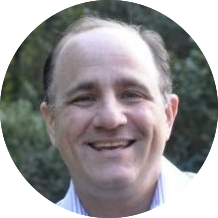The Language of Content
Articles from Speak Agent with math literacy and science resources, strategies, research, and program updates.
Rethinking Personalized Learning: The End of Average
May 16, 2018 | Dan LaFountain |
I was recently at the Udvar-Hazy Air and Space Museum just outside of Washington, DC with my sons. We were looking at the amazing variety of planes and spacecraft including the Columbia Space Shuttle. As we were looking inside some of the older aircraft, we compared the cockpits and the complexity of the instruments. One of my sons asked how anyone could possibly fit in there and be comfortable. This reminded me of a story from a book I recently read called The End of Average by Todd Rose. I was lucky enough to see him speak about it at last year's NewSchools Summit.
There is a great story in the book that describes how the U.S. Air Force went through an exhaustive process of trying to determine the average size of its pilots to build the perfect cockpit to maximize space and comfort. They thought that making one standard seat configuration that fit everyone would cause all of their pilots to perform better. After measuring and classifying hundreds of body part features on thousands of men, they went about the task of developing a seat that they thought would work for all of the pilots based on applying the average measurements they had recorded. What they found surprised them: The seats actually didn’t fit anyone. As they looked at their data again to determine how they had missed their mark, they made a fascinating discovery: Among all of the pilots they had measured, not a single one actually matched the "average" specifications. They had created a seat that did not meet anyone's requirements! The story goes on to discuss how they solved the problem. They decided that the solution was not to make one seat with average measurements that would fit no one perfectly, but rather to create a seat which could be modified and adjusted to each individual’s size and shape. And that's why we have adjustable seats in vehicles today.
The book goes on to illustrate a variety of other situations where solving for the "average" person failed for nearly everyone in a number of different situations. As I was thinking of how this applies to education, I realized that we’ve spent decades standardizing and having students take standardized assessments which don’t actually meet most students' needs. Most publishers create materials that align to standards designed for the "average" student.
Many education technologists have approached this problem by intelligently adapting the scope and sequence for students based on performance data. "Adaptive learning" has become synonymous with personalized learning. I’ve always been leery of this approach. Most software algorithms assume that the "average" student should progress from X to Y to Z, when that progression is often artificial and at some level will break down for virtually every learner. But the most important reason for my skepticism of computer-adapted learning is that it takes the teacher out of the equation. Teachers know and understand their students in ways that computers cannot. So, how else does one go about taking a curriculum that was made for the "average" student and create resources that meet highly specific and individual needs?
Speak Agent is focused on helping underserved students with ELL, SIFE, and low-SES backgrounds learn the key academic concepts that they need to succeed in each content area. One of the issues we faced early in our product development was how to create a tool that empowers educators to create resources that fit their specific scope, sequence, and pacing. We decided to solve this problem in a new and unique way: Speak Agent tailors authentic content directly related to your curriculum. Speak Agent delivers tailored content that provides authentic context for the key academic concepts and related vocabulary for each unit. Content is packaged in to digital lessons that can be further tailored for specific groups or individual students. Personalization does not have to mean computer-adapted independent learning. Speak Agent is also a fun and engaging way for your students to collaboratively learn the academic language that they need to excel!
If you're interested in a demo, or prefer a self-guided online demo, give me a shout!

Written by Dan LaFountain
Dan is Chief Learning Officer at Speak Agent, Inc. As a STEM and ELL teacher with 22 years in edtech curriculum development, Dan was integral to the launch of LEGO Mindstorms and the LEGO Education brand. He co-founded Speak Agent to address the achievement gap for marginalized learners, pioneering a unique Content+Language integration approach based on current Learning Sciences research.

